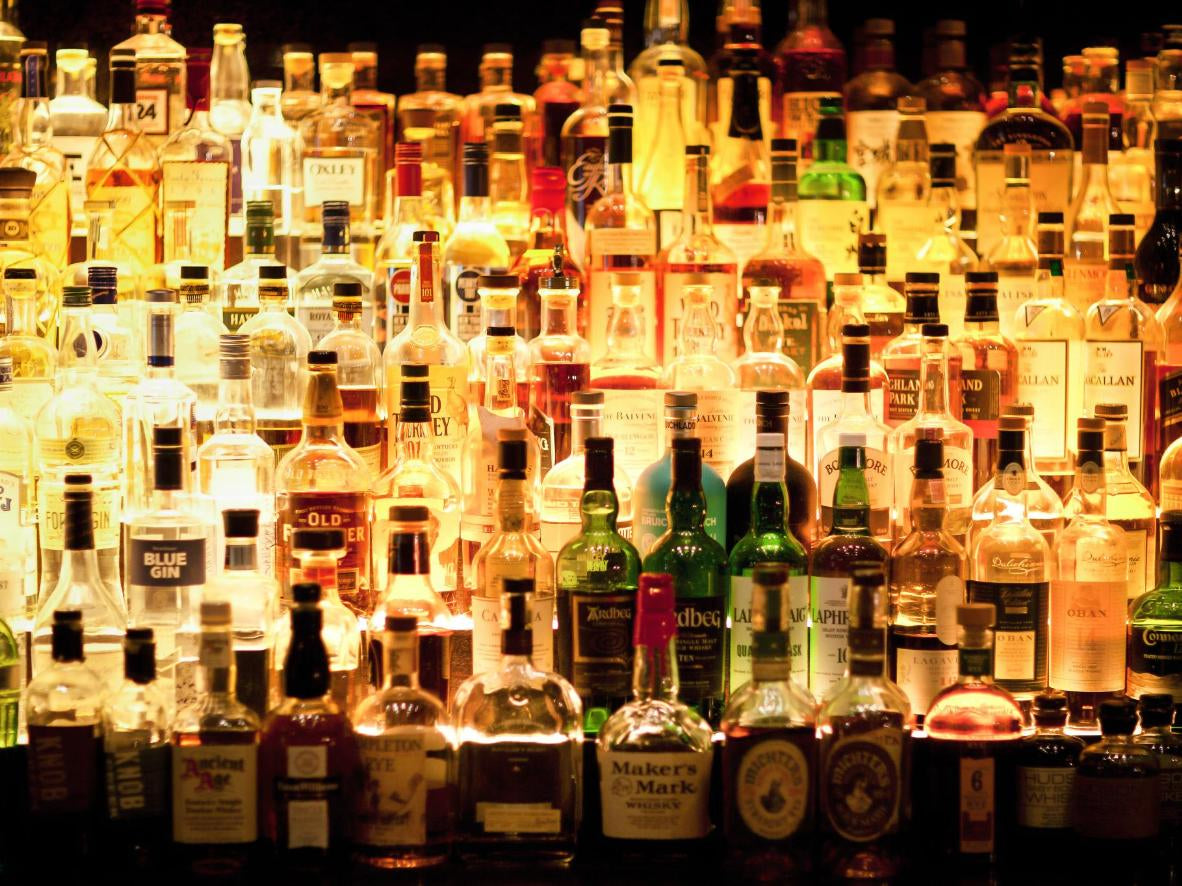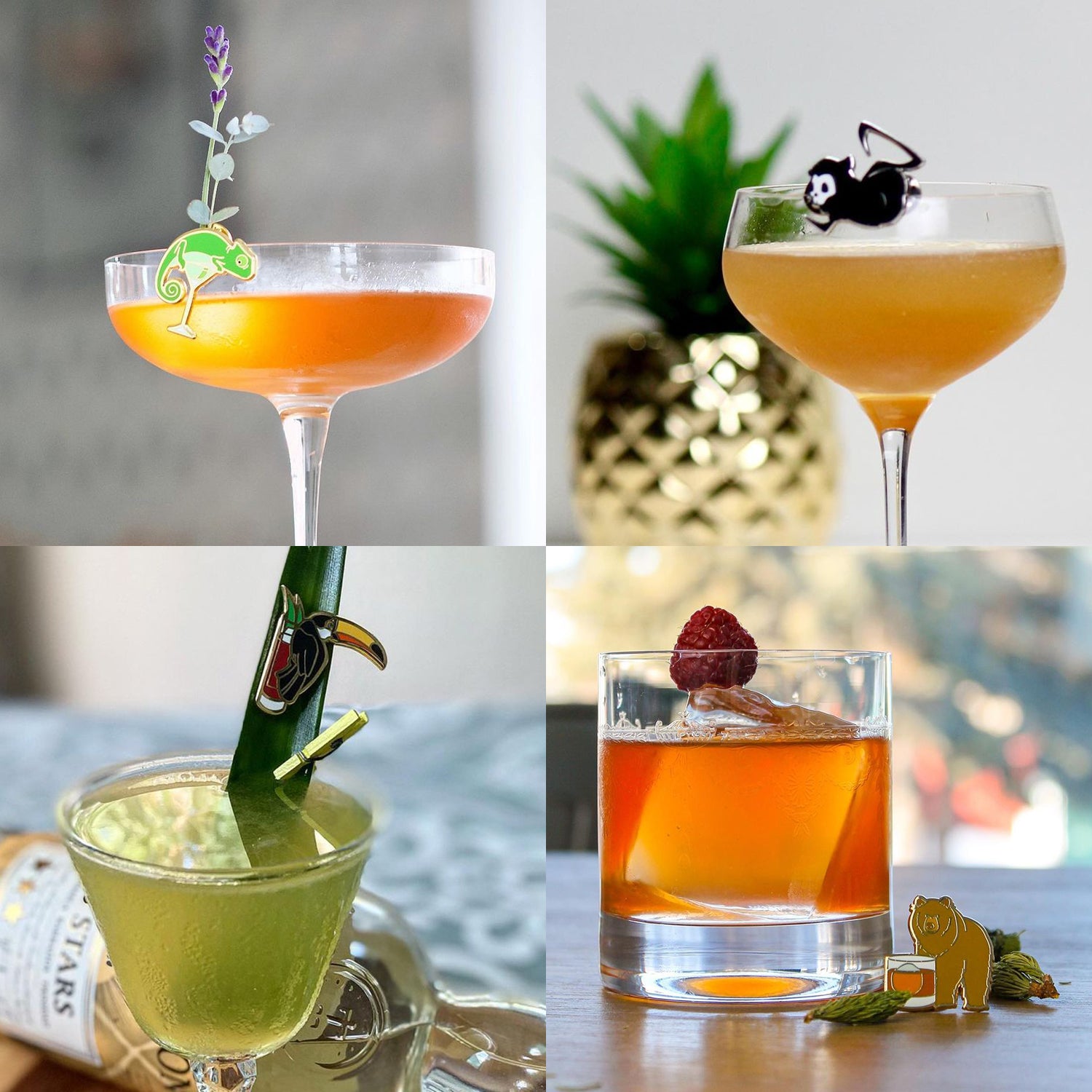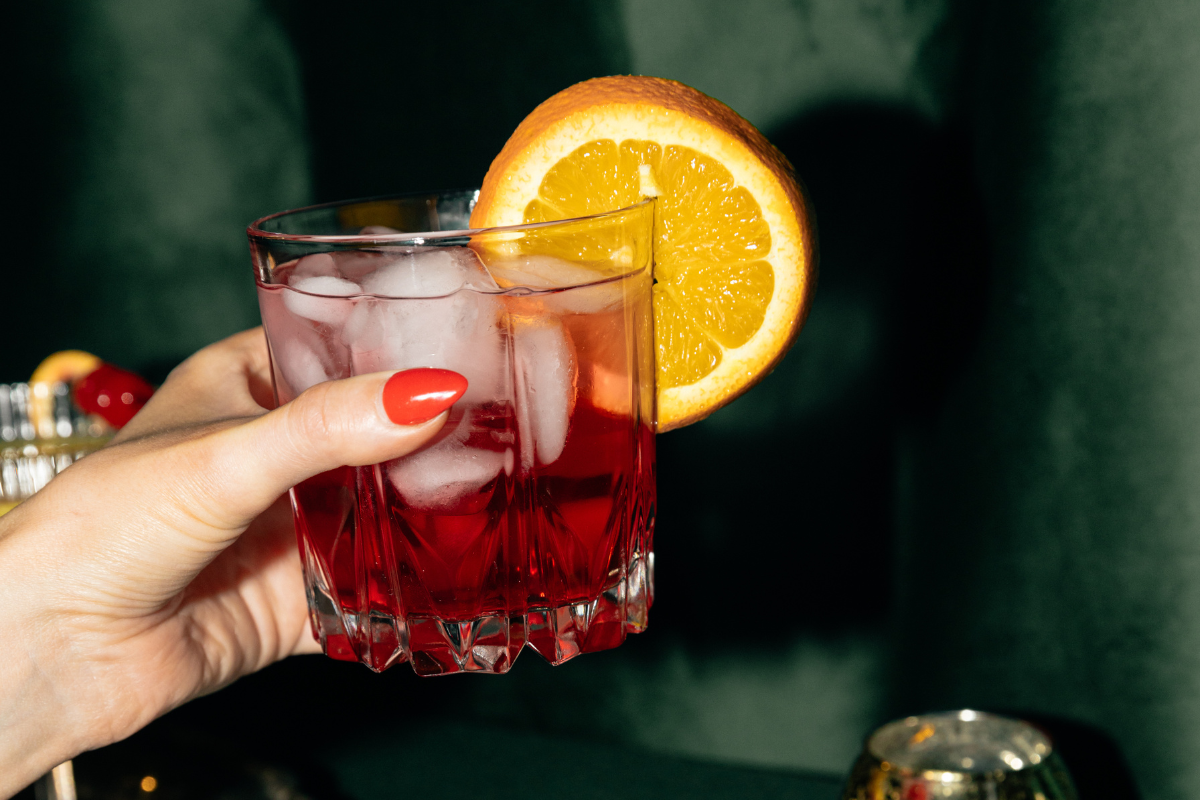
Unlike other popular spirits such as gin and vodka, whisky can be a difficult one to get into. Even within one branch of the spirit, there are multiple types, so figuring out which you like can be a challenge.
Below, you’ll find a brief roundup of the drink’s history along with some distinctions between the most popular types. Hopefully, this should set you on your way to discovering your favorite!
Cocktail Critters
Looking to spruce up your next whisky evening? Pin on one of our fun & fashionable enamel pins designs or keep your favorite whiskies cool with our famous Scotch Ness Critter whisky stone.
A Brief History of Whisky

Regardless of the specific type, whisky is made by distilling alcohol from grain mash -- most commonly comprised of malted barley, corn and/or rye. The alcohol distillate is then aged in wood casks for years, which is where it gets its characteristic golden color. Due to the spirit’s age, nuances and popularity, it’s also one of the most tightly regulated alcohols in the world.
Scotch Whisky
Scotch whisky (no "e" here!) is generally seen as the “original whisky”, although it’s debated whether it appeared in Irish history first. The drink comes from a medieval spirit called aqua vitae (water of life), which was used for medicine. The first evidence of whisky being produced in Scotland is from 1495, when an order was placed for 500 bottles.
Scotch whisky is split into 2 main types, which are:
- Malt whisky, made entirely from malted barley
- Grain whisky, which can be made from corn, wheat or rye
Within these 2 main groups, you have blended and single whiskies. Single malt, for example, is made from malted barley that comes from a single distillery, whereas a blended malt is made from different malt whiskies from different distilleries. Single grain, similar to its single malt cousin is made from a grain distillate from a single distillery, and blended grain is made from different grain whiskies from different distilleries.
The most common and highly consumed version of Scotch whisky however goes to the Blended Scotch category -- comprised of a combination of single malts and single grains -- which makes up ~90% of all Scotch whisky consumed.

All Scotch must be aged in oak barrels for a minimum of 3 years to be considered Scotch whisky. Additionally, if it has an age on the bottle label, it refers to the youngest whiskey used in the batch (i.e. 12 years old).
If you're new to the category of Scotch whisky drinking, here's a short list of popular blended Scotch brands to get your feet (and taste buds) wet:
- Johnnie Walker Red Label - $20
- Grant's Triple Wood - $18
- Dewar's White Label - $19
- Chivas Regal 12yo - $27
- Ballantine's Finest - $20
Irish Whiskey
Believed to have originated in 1870, the spelling "whiskey" with the additional "e" was to differentiate Irish whiskey from its close but (at that time) inferior cousin in Scotland. This became especially apparent when exporting to the US, who took on the same spelling thereafter.
What makes Irish whiskies distinct are generally two components (though not a hard and fast rule) -- which their whiskies are triple distilled and made from a combination of grains (i.e. wheat and corn). This flexibility of grain mash style and distillation process creates a lighter bodied spirit and smoother dram.

Here are a few Irish whiskies to try on a budget:
- Tullamore Dew - $19
- Jameson - $20
- Teeling Small Batch - $26
- Bushmill's Original - $23
American Whiskey
Americans typically add an "e" to their whiskey, inheriting the spelling from the imports of Irish whiskey. While you can get barley and wheat whiskies made in the USA, it’s most famous for its bourbon and rye varieties, which officially started in the 1790s.
Rye whiskey is pretty simple – it’s made from rye mash. Bourbon (most famous as Jack Daniels or Jim Beam) is made from corn. Although bourbon can be made anywhere in the country, it’s most commonly associated with the American South, particularly Kentucky.
Unlike Scotch whisky, the aging requirements aren’t as strict for bourbon and other American whiskies. For example, bourbon that’s as young as 3 months can be sold, while straight bourbon must be at least 2 years old.

I'm skipping the Jack & Jim on this list and just listing a few favorites. If you don't see your own favorites, let me know and I'll do my best to cover it in the future!
- Bulleit Bourbon - $23
- Four Roses Bourbon - $32
- Michter's Straight Rye - $45
- Angel's Envy Bourbon - $37
Japanese Whisky
Japanese whisky is a comparative newcomer to the industry, as it started in the 1870s. It’s most similar to Scotch, as it was designed to be a domestic recreation. As such, it’s made from malt barley and is most commonly blended.
Although the recent rise in popularity meant that manufacturers were importing spirits, a recent law stated that everything must be produced and distilled in Japan for it to be considered Japanese whisky. Due to its similarities to Scotland’s climate, a lot of the country’s production takes place in Hokkaido.

If you want to learn more about the history of Japanese whisky and its roots from Scotland, there are wonderful resources that dive deep into the subject.
If you've never tried Japanese whisky before, here's a short list to get you started:
- Suntory Kakubin Whisky - $40
- Suntory Whisky Toki - $35
- Yamazaki Distiller's Reserve - $78
- Hibiki Harmony - $83
Final Thoughts on Whisk(e)y
As you can see, the history of whisky is fairly complex once you start breaking it down into different types and origins. To familiarize yourself with the industry, it’s best to start with which grain you like. From there, it’s just a case of drinking yourself around the flavors until you find one you like!
We can't think of a better way to help you do that than with our Scotch Ness Critter Whisky Stone! Swirl your favorite or newly discovered whiskies with your new drinking buddy.
Scotch Ness Critter Whisky Stone
Perhaps you want a dram on the go? Are you Scotch traditionalist or American bourbon patriot? Break away from the crowd and wear your new favorite whisk(e)y t-shirt available in-store.
Anti Whiskey Whisky Club T-Shirt









